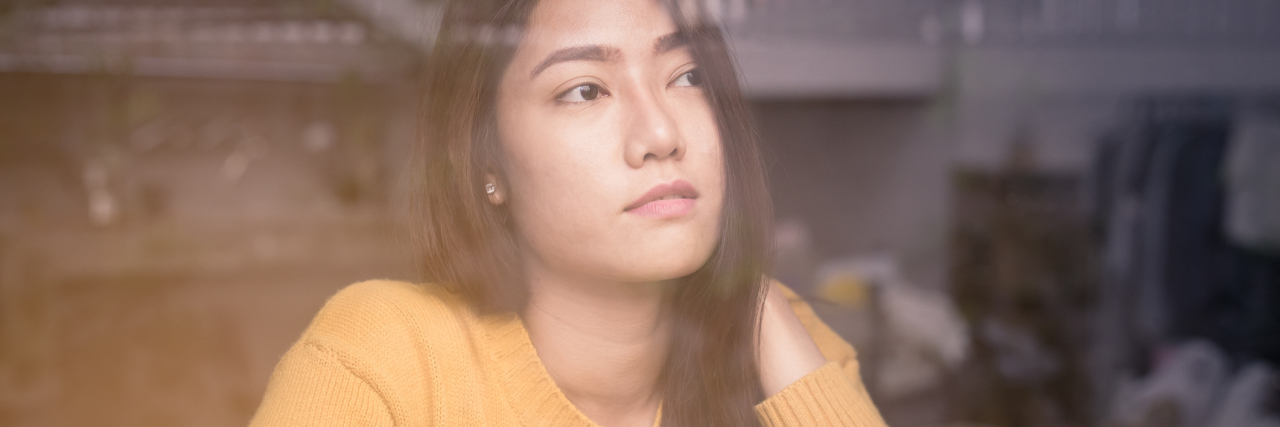Am I proud of my stay in a psychiatric facility? Well, it’s not exactly winning a gold medal at the Olympics, but admitting that one needs help is certainly a courageous step, I would later learn.
• What is Bipolar disorder?
How did I get here? I was a successful businesswoman in the field of public relations. I was starting a business. But I was slowly losing myself.
It was a destructive phase of spending, drinking and promiscuity that had led me to a downward spiral of debt, lies, a list of God-knows-how-many lovers, suicidal thoughts and apathy.
It was the apathy that scared me. Why did I not care that I ruined relationships with the people to whom I was closest? Why did I not care about the ramifications of my actions? “Check me in,” I told the counselor. “Check me in today, if you can.”
It was here at this facility where I was diagnosed with bipolar disorder I. My recovery and redemption are not yet complete; my family and I are still learning to live with this. But so far, here are the lessons I have learned.
1. People are good at heart.
It may be naïve of me to say this, but it was difficult to reconcile my housemates with the evils they have done in the “outside world.” Grown men with tattoos and permanent scowls on their faces would fill in colors in the adult coloring books, hoping to finish a masterpiece to give to their children, grandchildren, their wives, their mothers.
Arthur* was my “big brother” in the facility, and sort of oriented me with the ins and outs of the place. He was a serious man with a kind face. He advised me on the importance of serenity, surrender and trust in the “Higher Power” (a recovering person’s all-encompassing term for God, Allah, the Universe, the Supreme Being). But he was also a high-powered real estate broker who regularly cheated on his wife and lost roughly a million dollars to gambling. Stripped of the outside world, however, he was also another patient, another person looking for redemption.
2. You never needed technology to connect.
We weren’t allowed to use any type of technology at the facility. As such, we talked — really talked — about our lives, and about everything else. We made each other laugh and held each other when we cried. We became so familiar with each other’s expressions and habits and oftentimes, we could tell what the other person was thinking with just one look.
Benny* was an optometrist who came in after a drunk driving accident. He was a drug addict and alcoholic, but he also lived with bipolar disorder. He introduced me to that new world and gave me solid advice on how to live with it. “Never be alone. Always take your medicine. Monitor your moods.” Outside, we would never have met each other; we moved in totally different circles. But inside the walls of the facility, we became not just friends; we became family.
3. There is a stigma with mental health and addiction when really, there shouldn’t be.
Not everyone needs to check into a psychiatric facility, but at one point, everyone does have to deal with certain mental health issues. I once laughingly called the facility a “Loony Bin,” a self-deprecating joke. One of the interns pointed out, “you know,” she said, “you shouldn’t call it that. These are serious issues that people have to deal with.”
While media campaigns have shed awareness on depression, dementia and other mental health disorders, people have yet to understand what goes on beneath a patient’s seemingly normal façade. “You have always seemed OK,” someone told me after I admitted to them that I had bipolar disorder. “Yes,” I said. “But I wasn’t.”
Now that I live with a chronic disorder, I am in better control of my life: I manage a schedule; I express my feelings; I take my medicines. I am still living with the repercussions of my full manic episode, but I am beginning to forgive myself for it. And I am learning to love myself — I may have bipolar disorder, but I will not let it define me.
* Names changed for privacy.
Follow this journey on the author’s blog.
If you or someone you know needs help, visit our suicide prevention resources page.
If you need support right now, call the National Suicide Prevention Lifeline at 1-800-273-8255, the Trevor Project at 1-866-488-7386 or reach the Crisis Text Line by texting “START” to 741741.
Getty Images photo via sorrapong

